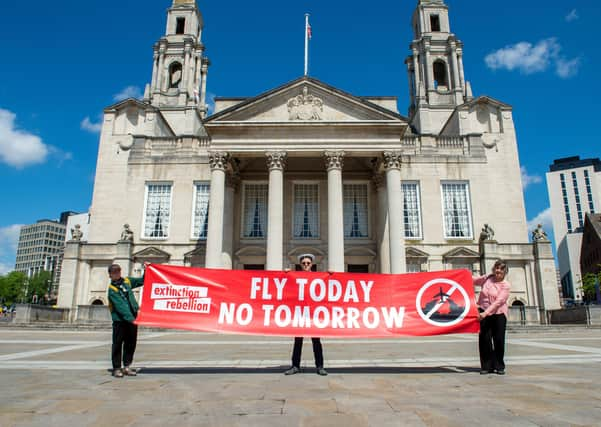Expert says expansion will fly


Dr Anthony Whiteing, a senior lecturer at the University of Leeds Institute for Transport Studies, believes that Leeds City Council could find itself with no choice but to approve plans for a new £150m terminal at LBA, due to stifling planning regulations.
However, he claimed that, such was the airport’s reliance on package holidays rather than business flights, that it was difficult to see where projected boost to Leeds’s economy would come from.
Advertisement
Hide AdAdvertisement
Hide AdThe debates over whether or not the airport’s expansion, and subsequent increase in flights, would benefit the economy, have been the source of much debate over the past few months.
Last month, a study by economics firm Volterra Partners estimated the “economic footprint” from LBA’s proposed £150m expansion would total just under £2bn between 2024 and 2050. It followed a report earlier this month by the New Economics Foundation think tank, which estimated the amount leaving the economy over that period could be as much as £3bn.
Environmental groups say airports like Leeds Bradford urgently need to reduce their numbers of flights if the world stood any chance of avoiding environmental catastrophe in the coming years.
But Dr Whiteing said he expected the plans to be approved by Leeds City Council in the new year, as the authority would be unlikely to win on appeal, should it reject the proposals.
Advertisement
Hide AdAdvertisement
Hide AdHe added: “These days, with the planning systems we’ve got in place, planning applications go through unless there’s a compelling case against – if the decision (on appeal) went all the way up to the minister, he would probably be in favour of the airport.”
When a planning application is rejected by local council planning committees, developers have the right to appeal against the decision to the government planning inspectorate. This often results in an inquiry into whether or not the application should go ahead, meaning the council committee has to outline sound planning reasons for rejecting the application.
If the inquiry rules against the original decision – the council must then pay the other side’s legal costs and can even lose out on extra cash from developers to spend on local schemes, known as S106 money.
“The economic growth arguments don’t stack up very well in my view,” said Dr Whiteing. “It’s not in the business market – it’s in the package holiday and city break market.
Advertisement
Hide AdAdvertisement
Hide Ad“There aren’t any flights to Glasgow or Edinburgh anymore – there aren’t any routes to London – British Airways scrapped it permanently. The only business flights now are through Amsterdam.
“There is a business case for running the airport, but there is not a business case for the regional economy. The business connections aren’t there – they are declining.
“They are so heavily dependant on Jet2 and Ryanair. Rather than the business growing, it’s been shrinking, but they keep telling us there will be dozens of flights in 2030.
“I can’t see where these dozens of flights are going to come from, frankly.”
Advertisement
Hide AdAdvertisement
Hide AdAt a Leeds City Council meeting back in September, LBA chief executive Hywel Rees said: “The existing terminal building, which I hope to demolish, was built in 1965. Any of you who have used the airport recently will know it is not really capable anymore of providing the levels of customer service that the modern world expects.
“For people with reduced mobility and sustained mobility, we need to modernise the building – it is 55-years-old.
“We have worked hard to make these proposals as sustainable as possible – the first area is in terms of the airport and its operations will be net-zero [carbon emissions] by 2023. These are the carbon emissions we can control very closely.
“It is a £150m investment with short term jobs in construction and longer-term higher-paid jobs as the airport develops.”